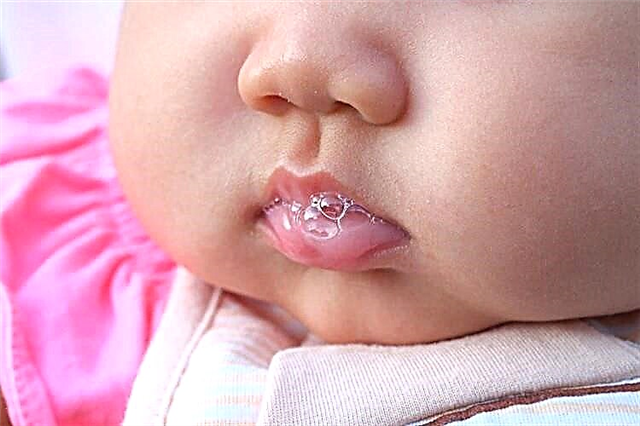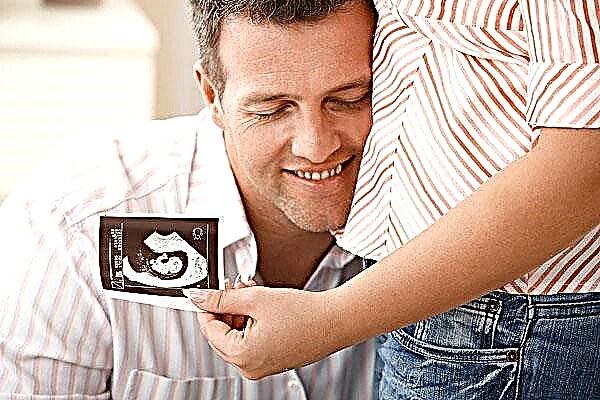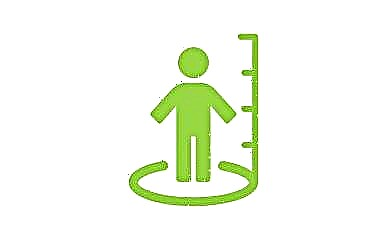Children under one year old often have allergic reactions to food and other irritants: medicines, animal hair and dander, small particles of plants. In order to diagnose the problem in time and start treatment, doctors recommend passing an immunological test. Usually, children tolerate this procedure well, so you should not be afraid of going to the children's clinic.

Allergies are one of the most common childhood diseases
Causes of allergic reactions
The most common causes of this immune disorder are:
- Wrong living conditions of the child;
- Incorrect food organization;
- Hereditary predisposition;
- Weak immune system.
A tendency to allergies can manifest itself at any age, most often the first signs of the disease are noted precisely in early childhood.

Disease susceptibility is often inherited
About a blood test for allergens up to a year
An allergen test in a child is a fairly effective way to identify the cause of an unwanted reaction. It is handed over only by referral from a doctor.
Indications and contraindications
Indications are pronounced signs of allergic reactions: skin rashes, frequent respiratory diseases, chronic rhinitis. All of these conditions can be signs of a dysfunctional immune system. Contraindications to the procedure are:
- teething;
- acute respiratory illness;
- any infectious disease;
- increased body temperature.
Blood is taken from a vein. The purpose of the procedure is to identify the level of specific immunoglobulins.
Advantages of testing over skin testing
Instead of analysis, many paid clinics offer infants a skin test. However, in a child under three years of age, this research method is often ineffective due to the complexity of assessing the result.
Types of blood tests for allergens
The most common blood test is the RAST test. Diagnostics using this method is as follows:
- Blood from a vein is taken from a child from 0 years old and placed in a test tube;
- Next, a solution is poured into a test tube that contains a certain type of allergen;
- After a while, the amount of antibodies in the blood is examined;
- If it is higher than normal, then the baby is allergic to a specific irritant.
The main disadvantage of this research technique is that it does not allow calculating the exact level of the infant's sensitivity to the tested allergen.
A more accurate result is given by studies that reveal the presence of immunoglobulin E in the baby's blood - this is the name of the substance responsible for the external manifestations of the reaction. For analysis, children's blood serum is mixed with substances such as food ingredients, animal hair, small particles of plants, and household chemicals. After that, the main stimulus is revealed. The main disadvantage of this diagnostic method is the long wait for the results.

There are many types of tests; which one to choose, the doctor will tell you
How is an allergy test done?
You need to properly prepare for an analysis for allergens in infants. This requires:
- Get a referral from a doctor;
- Determine the date and time of the procedure;
- Take with you all the necessary hygiene items for the child;
- If possible, give the baby any antiviral agent before visiting the clinic, so as not to get infected with children's respiratory diseases.
Compliance with a special diet the day before is not required. However, it is forbidden to give the baby antihistamines, otherwise the results may turn out to be unreliable.
How much analysis is done
The duration of waiting for the results depends on where the analysis is done: in the clinic where the child took it, or in another place. In the second case, it will take longer to wait for the results. If you donate baby blood for immunoglobulins, the average waiting period can be one to two weeks, this is considered the norm. The reason is the complexity of laboratory research.
Where can I take
An allergy test in a child can be taken in both a public and a private (commercial) clinic. Contacting a private medical center to get tested for a fee will avoid queues. However, in this case, you should first clarify by phone whether a particular organization works with children under one year old - in order to take blood from a vein from a baby at this age, a nurse must be highly qualified.

A referral for the procedure can be obtained at the children's clinic at the place of residence
Features of blood sampling in infants
It is not easy to take blood from a child for allergens to identify pathology. It is best to do this when your baby is asleep. A baby sleeping soundly for up to a year may not even feel pain, because everything is done very quickly.
Attention! Older children who eat adult food are tested on an empty stomach. A baby who does not receive complementary foods can be breastfed - this will not affect the correct result. In this case, the analysis can be submitted not only in the morning.
What does the decoding of the immunological analysis give
Deciphering the analysis helps to find out exactly what the child is reacting to. Usually the research result looks like a table. Its left column contains the names of allergens, and the right column shows the intensity of the reaction. The number "0" means no allergy.
What types of allergens can be identified
Laboratory tests can identify major food, respiratory, and tactile allergens in childhood. The first include food, the second - small particles of plants, the third - washing powders, cosmetics, household chemicals. The main thing is to figure out which substance is dangerous.
Attention! Many people mistakenly believe that cat allergies are due to the long, thick hairline of these pets. In fact, cat urine is the strongest allergen. Therefore, the baby will react in the same way to a long-haired and a bald cat (cat) or dog.
What to do after an allergy diagnosis
If, after donating blood from a child for an allergy, it was possible to find out which irritant causes an unwanted reaction, the allergen should be eliminated as soon as possible or contact with it should be limited. It is also worth doing to increase the baby's immunity. This requires frequent walks and hardening procedures. With exacerbations of allergies, you can periodically drink a course of antihistamines prescribed by your doctor in accordance with your age. After a while, you can take the analysis again.
Do not confuse allergies with food intolerances. The first disease will remain with the child for life, the second will gradually disappear as the digestive system develops. In case of an undesirable reaction to breast milk in infants, the ideal solution is modern dairy-free soy-based formulas.
If a baby has been diagnosed with an allergy, parents should not worry and panic. In most cases, this disorder goes away with age. The child simply "outgrows" his illness as the immune system strengthens. However, one should not neglect the treatment and testing. In order for the baby to be healthy, parents must clearly follow all the recommendations of the attending physicians: a pediatrician and an allergist-immunologist.



